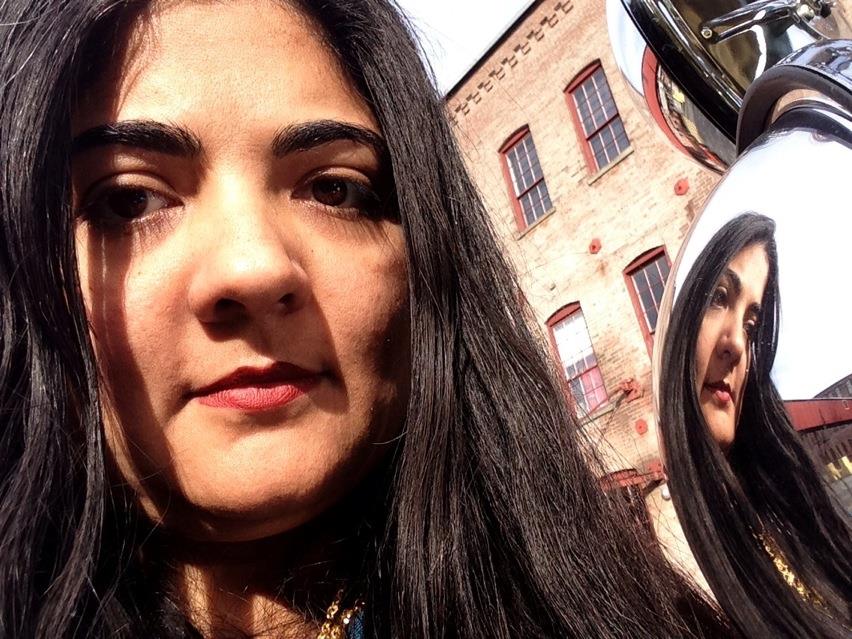Catapult Student Highlights! August edition
“I feel compelled to write stories in which I could see myself, as not only a South Asian woman, but also as someone whose preoccupations appear on the page.”

“I feel compelled to write stories in which I could see myself, as not only a South Asian woman, but also as someone whose preoccupations appear on the page.”
We recently caught up with Catapult Writing Program alumna Swati Khurana.
Swati Khurana was born in New Delhi, raised in the Hudson Valley, and lives in the Bronx. She has been published in The New York Times, Guernica, The Offing, The Rumpus, and elsewhere. She has exhibited at the DUMBO Arts Festival, Queens Museum of Art, the Smithsonian Institution, and received awards from the Jerome Foundation, the Bronx Council of the Arts, Cooper Union, and the Center for Book Arts. She is a graduate of Hunter Colleges MFA in Fiction program and a Kundiman fellow. In 2016-2017, she will be working on her novel The No. 1 Printshop of Lahore through the Center for Fiction’s Emerging Writers and Vermont Studio Center’s Grace Paley Fiction Fellowships.
*
When did you start writing? Why did you want to be a writer?
As a lonely and non-athletic teenager, I was always writing and reading. As an adult, I took very substantial breaks from reading and writing fiction to focus on studying history and making visual art. In 2010, when I was pregnant, I left my shared studio because of the toxic chemicals used in the space, and found myself writing again. As the mother of a young child, I have come to realize that writing begins when we start playing, that stories begin before verbal or written language, and we are all puppeteers and then playwrights before we are writers.
I think a lot about what Joan Didion said: I write entirely to find out what Im thinking, what Im looking at, what I see and what it means. I feel compelled to write stories in which I could see myself, as not only a South Asian woman, but also as someone whose preoccupations appear on the page. Characters who witness the development of new countries, but dont believe in borders and the nation-state. How women negotiate existing in unwelcome public spaces and having ambitions. The delusions, insecurities, and fluctuations of the artistic process. And through writing, I am really thinking through how we create meaning for ourselves.
Congrats on the Center for Fiction Emerging Writers Fellowship! What do you hope to achieve in your year as a fellow?
Thank you so much! I left my MFA program with a 120-page draft of my novel, and this year, Id love to finish a first draft, which will probably be very messy and disorganized. Through the fellowship, we are matched with editors, and Im most excited about that prospect. Because I had only written short stories before, how these words, sentences, paragraphs and pages become a novel remains a mystery to me, and Im so grateful to have the opportunity to have a seasoned editor give me feedback on my manuscript. Ive also enjoyed meeting the other fellows and talking about how our novels or story collections are going. It already feels like a strong community.
Who are the writers most influencing your work now?
Recently, I loved Kaitlyn Greenidge’s novel We Love You, Charlie Freeman and can’t get enough of her personal essays. It’s really exciting for me to read people’s first books, as it fills me with optimism, and I recently loved the debut novels by Nayomi Munaweera, Chaitali Sen, Idra Novey, and Tanwi Nandini Islam. When I want to write something compressed, but exploding with story, I find myself reading poets Chen Chen, Monica Sok, Safia Elhillo, Janine Joseph, Saeed Jones, Natalie Diaz, and Steven Reigns, to name a few. When I want to feel more vulnerable on the page, I reread essays by Kiese Laymon, Roxane Gay, Rebecca Solnit, Soniah Kamal, Lidia Yuknavitch, Alexander Chee, and Minal Hajratwala.
What have you been reading lately?
Over the summer, I took the plunge, finding myself on the Elena Ferrante bandwagon, waiting to finish the last of the Neapolitan novels. Currently, I am reading two friends’ drafts of their first novels, and it feels like being invited to witness a prenatal sonogram and see a fetus’ heartbeat. It’s a privilege to see these works before they are out in the world. It gives me hope that one day maybe my heap of words and pages can too get fully formed and live out in the world.
What are you working on now?
My novel is set in 1940s Lahore, during the last days of colonial India. I am really trying to get to know the characters and have them surprise me. Every time I make an outline, I abandon it, so I’m trying to live in this space of fogginess and messiness to get to the finish line.